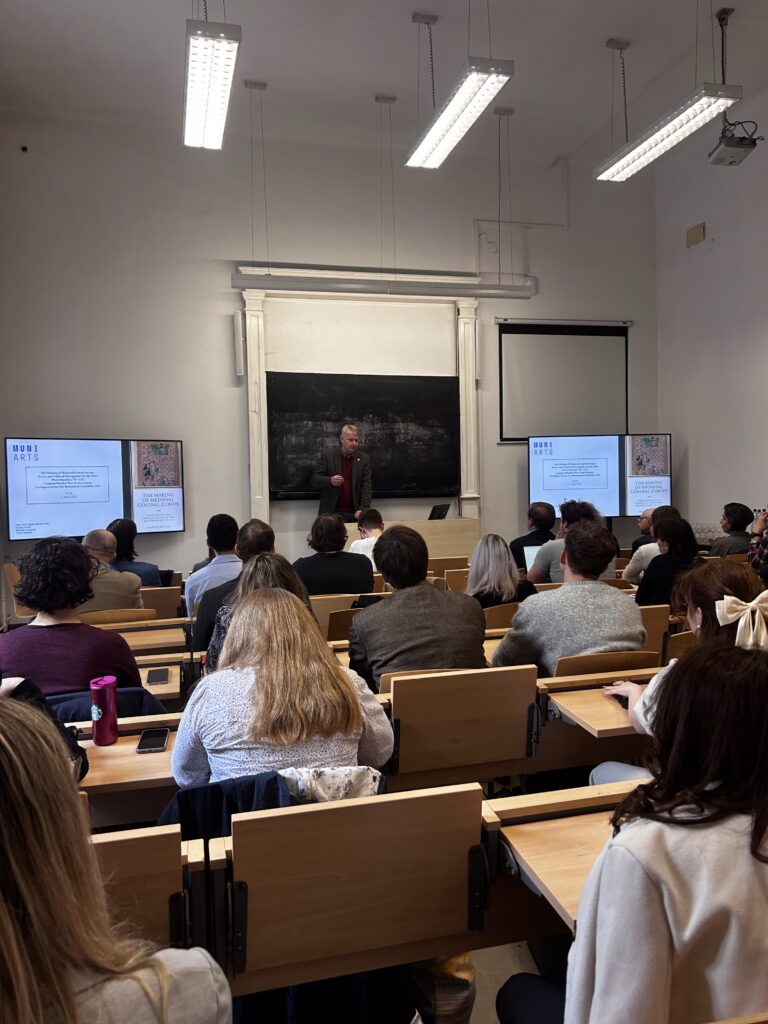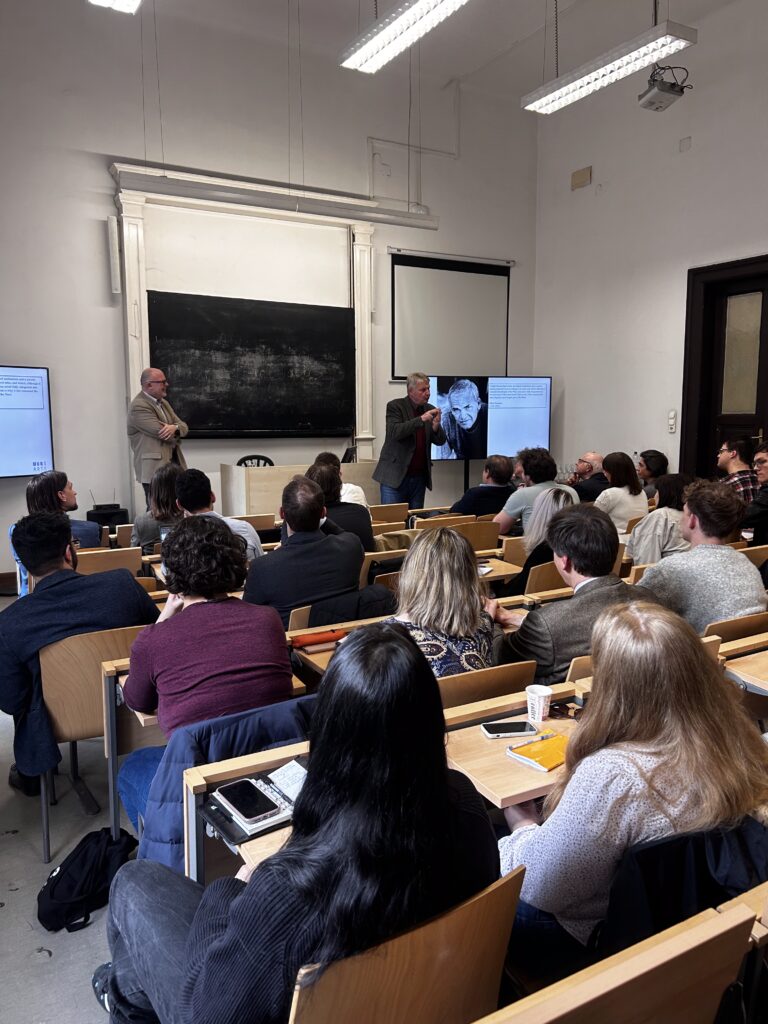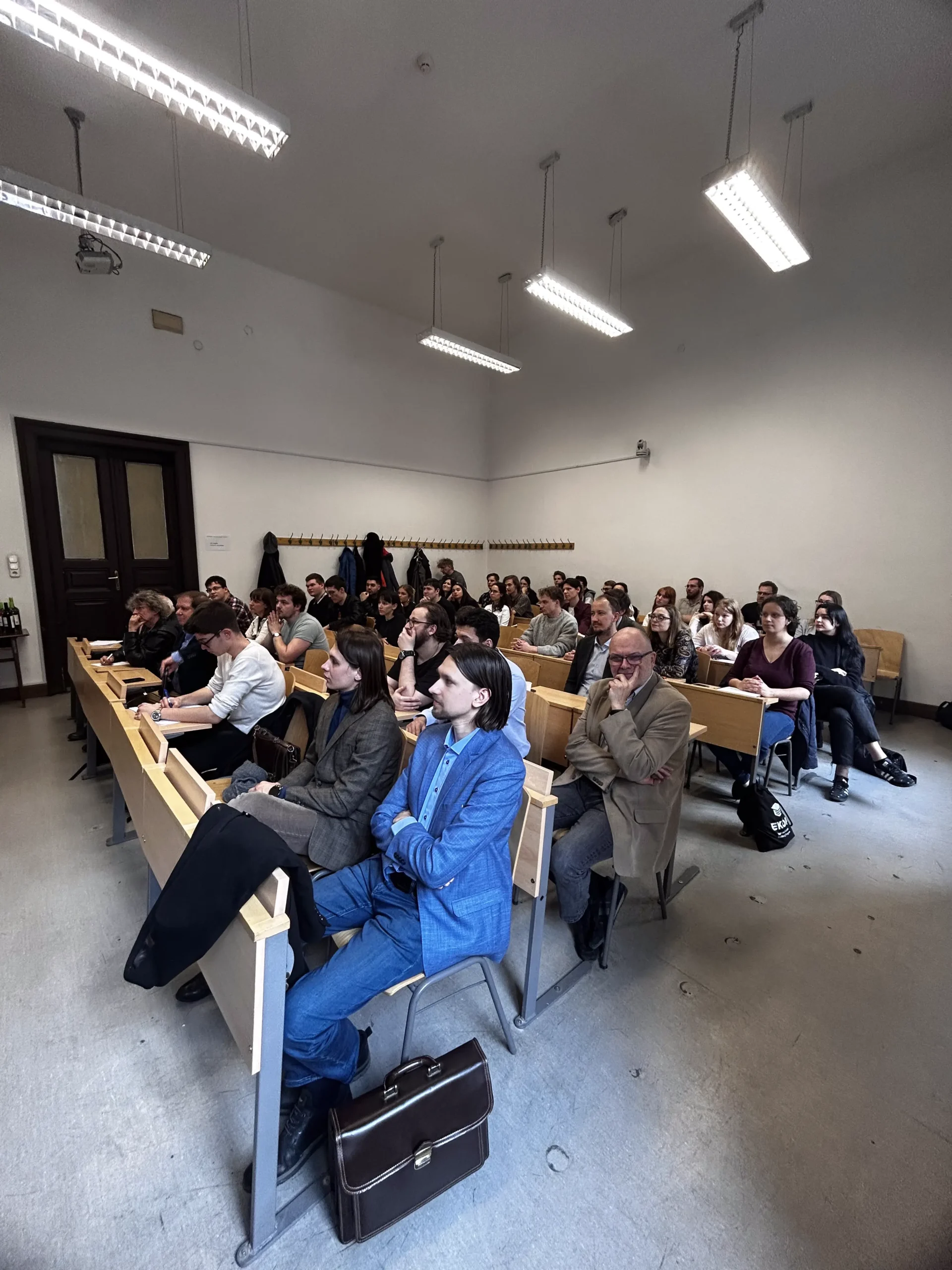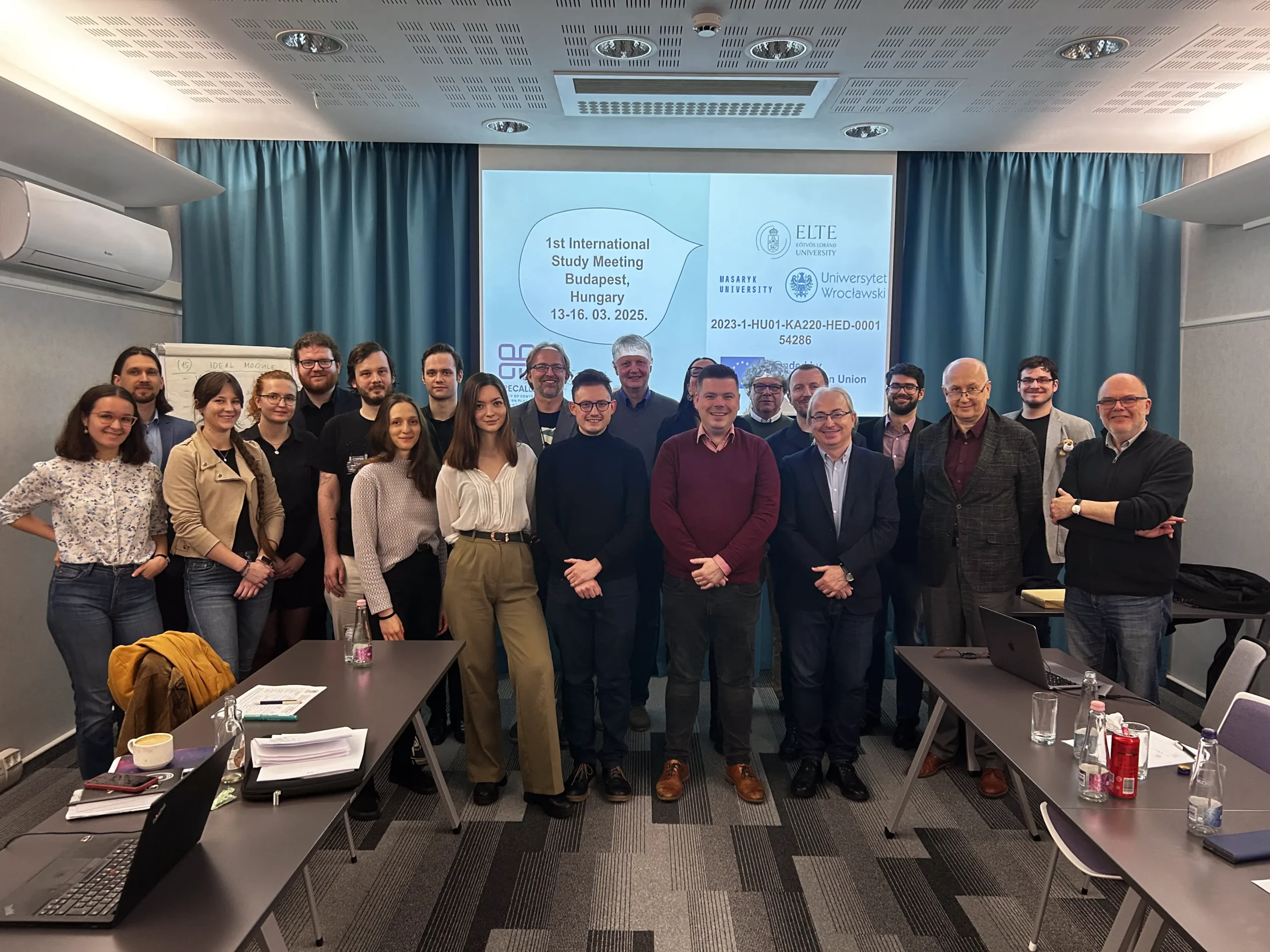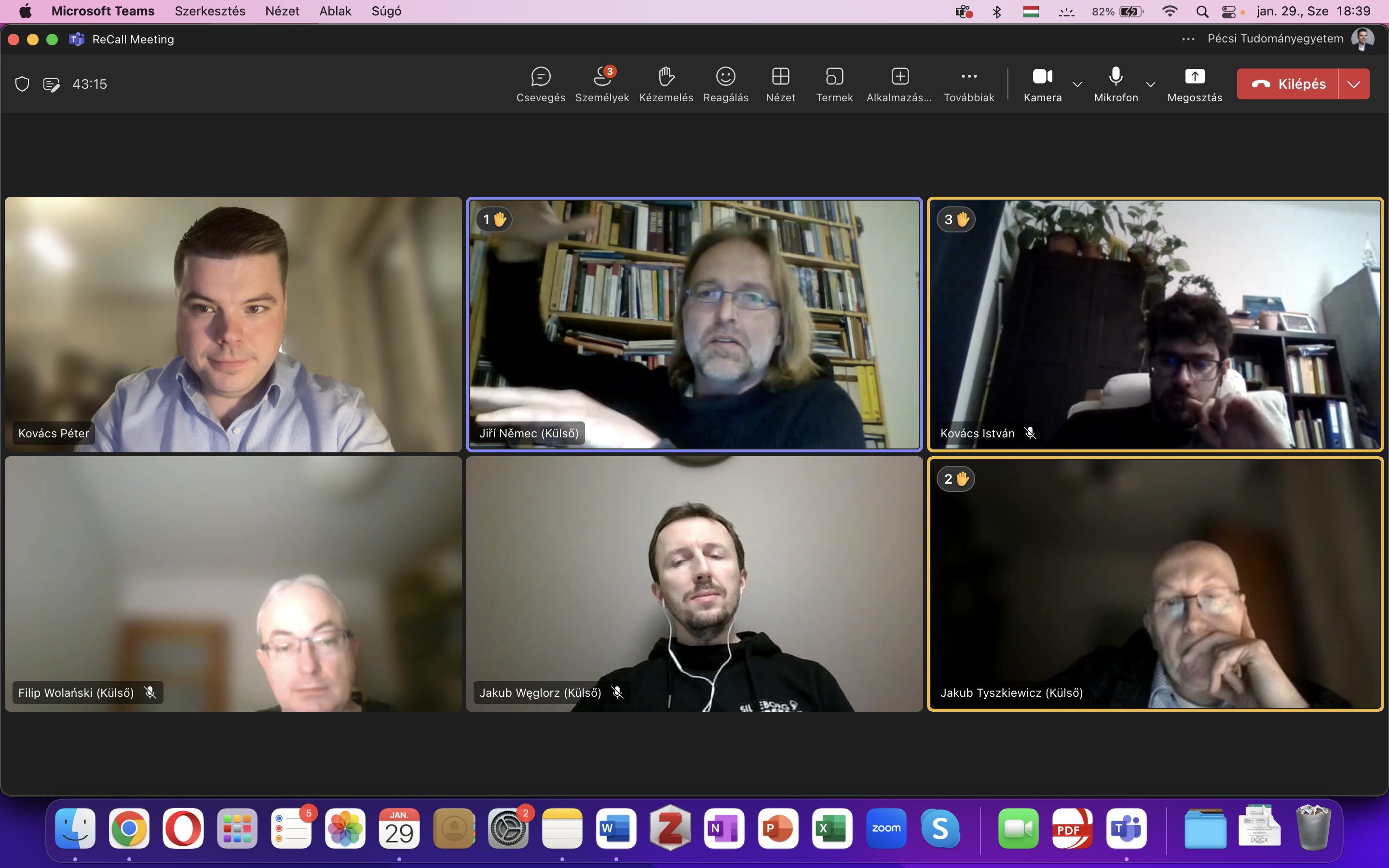On April 1, 2025, the Department of Medieval History and the Department of Eastern and Central European History and Historical Russistics at ELTE Faculty of Humanities had the honour of hosting Prof. Martin Wihoda, Vice Head of the Department of History at Masaryk University (Brno) and project coordinator of the RECALL Project. His public lecture attracted more than 50 students, researchers, and faculty members, filling Room 11 to capacity.
Prof. Wihoda’s lecture, titled „The First Wave of Westernization: Central Europe’s Path to the Latin West (9th–12th century)”, provided a compelling overview of the region’s transformation during the early medieval period. Drawing on his recently published monograph (2024), he explored how the integration of Central Europe into the Latin West unfolded not as a one-directional imposition but through complex local processes of adaptation, negotiation, and reinterpretation.
A Local Construction of “Europeanness”
In his lecture, Prof. Wihoda emphasized that the westernization of Central Europe was not simply about the passive reception of external influences, but rather a co-created cultural project. Political elites, ecclesiastical institutions, and local communities all played a role in aligning their practices with the norms and expectations of Western Latin Christendom.
Using examples from Bohemia, Poland, and Hungary, the talk highlighted how monarchies and bishoprics served as key agents in this process. The adoption of Latin literacy, canon law, and ecclesiastical frameworks marked a fundamental shift in how power was organized and legitimated. At the same time, these changes were embedded in local political contexts and often reframed to suit regional interests.
Comparative and Interdisciplinary Insights
The lecture resonated strongly with ELTE’s long-standing scholarly interest in Central European regional history. By placing the region’s transformation in a comparative framework, Prof. Wihoda’s analysis sparked meaningful reflection on what constitutes “European heritage” and how shared political and religious traditions developed across linguistic and cultural boundaries.
In the lively discussion that followed the presentation, students and faculty posed questions about the role of ecclesiastical elites, dynastic strategies, and medieval communication networks in shaping these developments. The dialogue underscored the enduring relevance of these historical processes in understanding both medieval and modern notions of Europe.
About the Speaker
Prof. Martin Wihoda is a leading medievalist specializing in Central European political and ecclesiastical history. He is the author of several influential works and currently Czech coordinates the RECALL Project, which focuses on rethinking historical memory, integration, and cultural transfer in the region.
